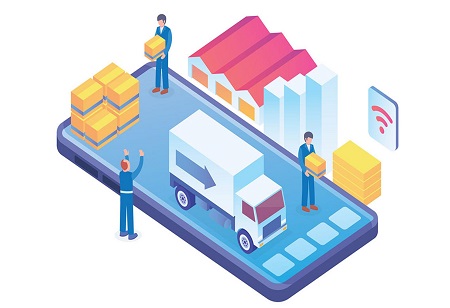In the last one decade, startups have revolutionized the way the world use to function. It has impacted every other industry and now it is disrupting the
logistics industry. The new age startups that are backed by right team are able to adapt to emerging imperatives such as agility, customer centricity and the need to constantly innovate in a better and precise way. Startups have used technologies to automate the processes, drive efficiencies and improve the customer experience.
This accelerating use of technologies by different startups also leads to changing business models. Many largely automated digital forwarders and logistics platforms have come up. Switching from the old method of tracking orders on paper to the digital platform will leave very less chances for any error. “Logistics industries that are functioning in all the possible verticals of the logistics sector, be it delivery nearby or be it a huge consignment in the
supply chain management, the basic idea is always to deliver on time”, says Prem Jha, Founder & CEO, Ante Air Logistics.
Automation of Logistics Industry
Mainly all the shippers, carriers and logistics companies have started to automate and digitalize the processes by deploying relatively new technologies introduced by startups. After the implementation of automation processes, the workflow of the logistics industry is controlled by the use of computers and software. Technologies like Robotic Process Automation (RPA), Artificial Intelligence (AI) and Distributed Ledger Technology (DLT) usually come as bundled in solutions.
Nowadays, robots are already able to manipulate objects in less structured environments. Also, they support zero defects logistics processes while massively aiding performance as well as improving the sensing capabilities, hence nearly substituting manual handling.
Anticipatory Logistics
Many startups have implemented software solutions that are able to predict demand before it occurs. They are contributing in empowering logistics companies to substantially improve efficiency through reduced delivery times and better utilization of their transport capacity and network and big data predictive algorithms. Startups are introducing different technologies that need very little human intervention and adapt algorithms according to the data received.
Thus it becomes more efficient automatically and offers great potential for process optimization and the automation of decision making in logistics. Startups are trying to facilitate the use of sensor networks to support real time intelligence across logistics networks or in the cloud.
Providing Last Mile Delivery
Last mile delivery plays an important role in the logistics sector. It has also become vital to logistics industry because with the rise of e-commerce that has reinforced the importance of customer preferences. Last mile delivery has already gained significant importance of logistics companies by making use of a flexible courier workforce along with the power of the crowd. Experts believe that last mile delivery acts as a key differentiator in terms of customer satisfaction. There are startups that are at the forefront of providing businesses with affordable on demand logistics. These are also known to provide real time tracking for each delivery.
Focus of Startups on Augmented Reality
Augmented Reality (AR) came up as an emerging technology in the last few years. This emerging technology is introduced by startups for logistics companies which are willing to innovate. It offers several areas of application such as last mile delivery, line haul transportation and warehousing operations. Within warehousing, Augmented Reality massively contributes to a new paradigm of material handling by meeting full automation. Augmented Reality has an even greater potential for disruption as the regulatory system is more open towards them. This technology has the potential to carry storage shelves which ultimately improves the efficiency of warehouse. There are fully automatic solutions which are capable of unloading containers or palletizing are developed by establishing new application areas.
Providing Transparency
Startups have always tried to provide accurate data to the logistics companies. This new advancement in data collection and analysis offers the opportunities for companies to meet their goals in a better way. Industry experts believe that strategically data can be used for optimizing the route networks, optimizing the number of trucks and drivers required each day for the assignment and for tracking deliveries in real time.
In the long term, this preposition will not only be cost effective as it can reduce the money spent on manpower, fuel etc. It will also provide an edge in marketing to the companies using it. Presently, many new age startups have enabled businesses to carry out last mile deliveries and this has opened a whole new segment for the logistics Industry.
Expectations from Future
In the coming future, startups will help logistics industry in increasing speed, decreasing waste and reducing overall costs. Logistics companies must understand that the work done by these emerging startups will integrate with them to serve the customers in a better way. The logistics industry will go through a time of rapid and unprecedented transformation in the future as well. Also, this revolutionary event will allow devices manufactured by startups to communicate with each other within an existing internet infrastructure without human intervention.
